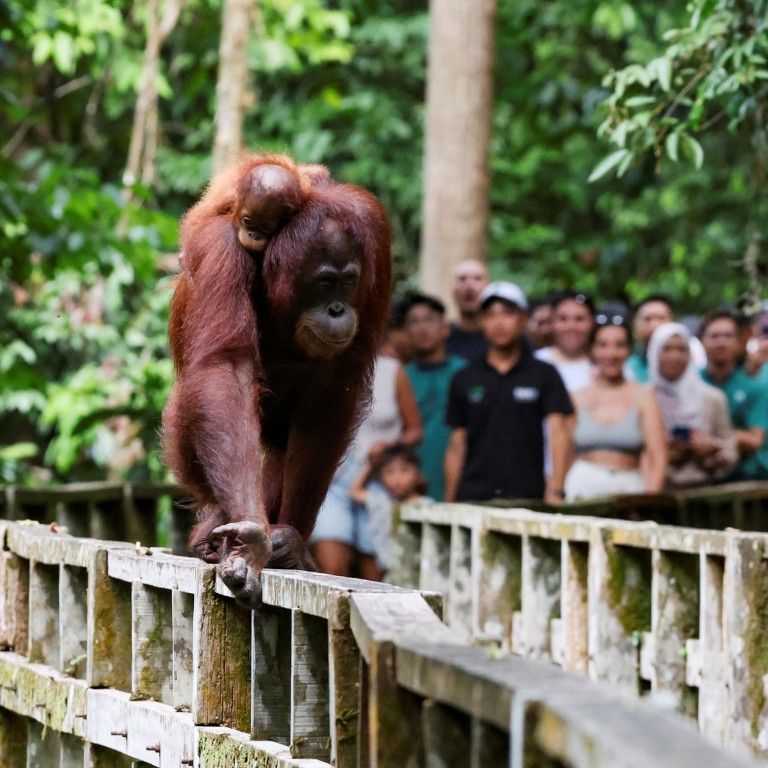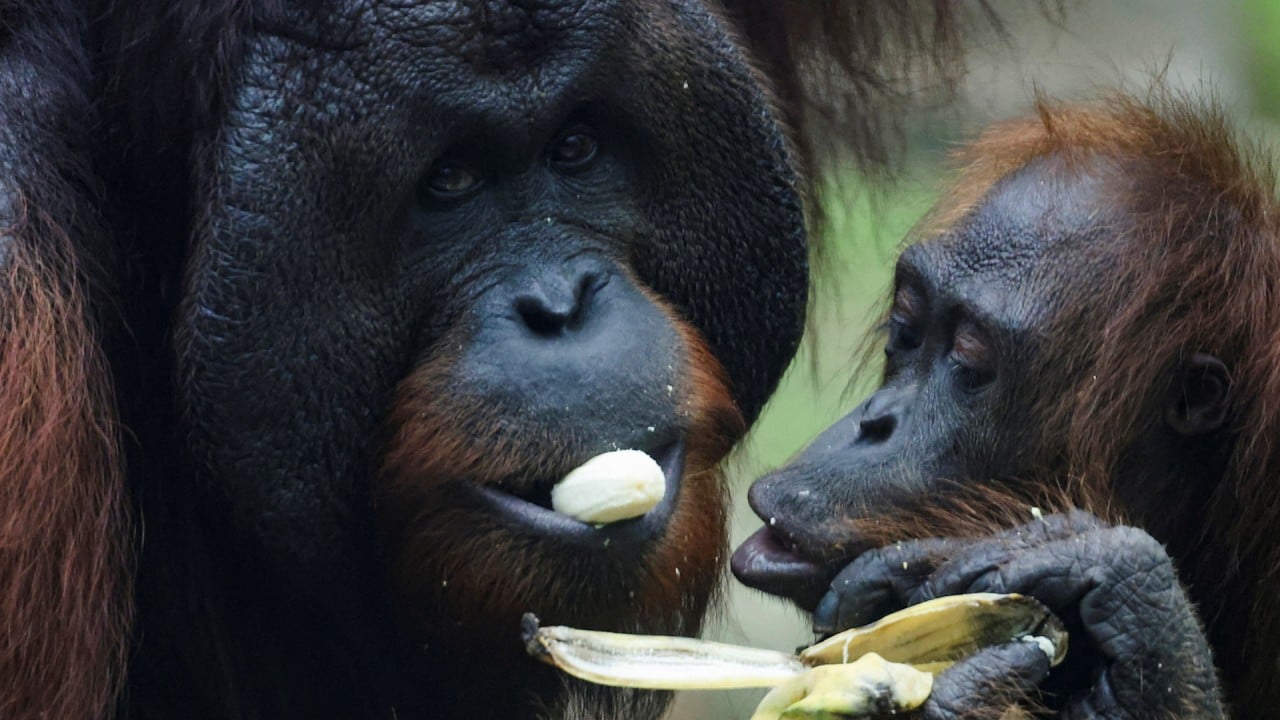
Malaysia commended for U-turn on ‘orangutan diplomacy’, focus on conservation
- The reversal is ‘a crucial step towards balancing economic growth with environmental sustainability’, the Worldwide Fund for Nature says
“Malaysia can showcase her commitment to orangutan conservation by conserving any remaining natural forests that are habitats for orangutans, including those in the palm oil plantations,” WWF Malaysia said on Tuesday.
Facing pressure from the European Union’s deforestation laws, which mandate traders who sell palm oil to the EU to prove their products have no links to deforestation, Johari mooted the idea of “orangutan diplomacy” to show Malaysia as a sustainable producer and its commitment to forest protection.
WWF Malaysia was against that idea, instead calling for in situ orangutan conservation, supporting sustainable palm oil production and increasing international funding for conservation efforts.
“Rather than sending orangutans abroad, this approach ensures the survival of the species and promotes responsible conservation practices and sustainable production,” the group said in May.
Speaking to This Week in Asia, Sarawak Forestry Corporation, the agency in charge of conservation in Malaysia’s largest and heavily forested territory, called the minister’s about-turn a “useful move”.
Conservation efforts of the apes’ natural habitat involved demarcating boundaries, building ranger stations, field patrolling, stepping up conservation education and field research and engaging with communities on projects that sustain their livelihoods, said Melvin Gumal, the agency’s lead conservation officer.
“These activities enable the orangutans to have funds that will ultimately ensure that their numbers are sustained in the wild and potentially increase, especially if poaching activities threaten their survival,” Gumal said.

Sarawak is already taking part in such a programme through its federal government-backed Sarawak Wildlife Conservation Trust Fund, which was launched in 2015.
“In this instance, the donors can indicate that they are donating funds to conserve orangutans in Sarawak,” he said.
The Sarawak programme ranges from a 200 ringgit (US$45) per year donation from individual donors to a corporate programme of 100,000 ringgit (US$22,883) for 10 years per ape.
Meanwhile, the Malaysian Palm Oil Green Conservation Foundation said on Wednesday that donations to the country’s orangutan conservation programme would qualify for tax relief, including funds given by palm oil industry players.
The tax relief complies with Malaysian tax laws, according to the foundation, which will use donations from the programme to conserve orangutans.

Malaysia and neighbouring Indonesia account for 85 per cent of the world’s palm oil production.
The voracious needs of palm oil and other industries have hacked at Malaysia’s 124,000 square kilometres of pristine rainforest – home to the critically endangered orangutan. It is estimated that the country has lost nearly a fifth of its old-growth forest since 2001.
The Orangutan Conservancy, a non-profit dedicated to protecting the apes, has said 2,000 to 3,000 orangutans on average are killed each year due to habitat loss caused by deforestation, palm oil plantations, illegal hunting, and the pet trade.
A 2019 WWF survey found that the primates faced a population loss of about 30 per cent in the Tabin Wildlife Reserve in eastern Sabah due to surrounding forest loss and conversion into plantations.
There are currently around 11,000 orangutans in Sabah and 2,000 in neighbouring Sarawak.


